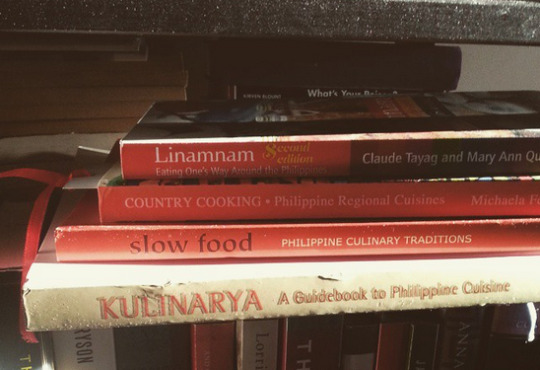5 Life Lessons I Learned in Mindanao
Trying to figure out who I am and why it matters is a big deal, and is a big driver to the decisions I make. When I decided to visit Mindanao after 10 years of living away from the Philippines - driven by a desire to walk amongst coffee trees, leafy acres of cacao trees and fields of pineapples in their native land - I learned a number of lessons that continue to prove their value every day.
1) The only way to get there is to take things one step at a time
I enjoy cycling 24 km to work every day for the same reason I enjoyed scaling the majestic Mt. Apo - because I’m just a little crazy, and crazy enough to know that placing one foot in front of the other is the only way to get to where you truly want to go. At nearly 10,000 feet above sea level, there were certainly times when I doubted, as I have before, the decisions that led me to stand above a slippery, steep boulder face, with no other way home than by climbing down an incredible height. Needless to say, most other challenges I face now stand up to this measure; with sore muscles, a battered spirit and absolute tiredness, I made it back to base and onto other things. One step at a time!
2) Banish every stereotype you have of people to learn true respect for everyone
Every person who I met in Mindanao exuded nothing but the same kindness, warmth and familiarity I expected of Filipinos as a whole. I felt as if I’d walked into a brick wall as soon as I realized that the fear many people have of Mindanao was a fear compounded by news reports and generational tension - if my parents had Facebook and could become friends with a bunch of wildlife photographers in Bukidnon, for example, perhaps the perception of Mindanaoans as a dangerous, untrustworthy people could have been broken sooner.
Learning to accept and truly respect someone for who they are is a lesson I’m glad moving to Canada provided. Bringing that openness to my travels in the Philippines resulted in experiences I could never replicate, like hiking through a Philippine eagle reserve with a leading conservationist. And back in Toronto, the lessons come full circle - there is no place for a negative stereotype, I believe, of people you have never met.
3) Pinoy pride is real
In Cagayan de Oro, Lloyd dropped his errands to tell me about his mom’s humba (pork stew) and how it put his entire family through school; in Bukidnon, Minnie took me around her family’s ranch to visit herds of cattle grazing under a cloudless sky, flanked by towering mountain ranges; in Davao, Mel of the awesome Mel’s Food Tour spent an entire morning with me as I ate my way through the city famous for durian, inihaw na panga (grilled tuna collar), pakfry (twice-fried tuna tail) and kinilaw (ceviche-style local fish), in what she calls “the way forward by looking up roots”.
You feel it in the hearts of everyone you meet. Filipinos are proud of their culture, their resources, their environment, their food. We just have to begin a dialogue and start talking about how pride in our heritage shapes our identity.
4) Community is everything
With the isolation I sometimes feel living in a constantly moving world, being truly welcomed into someone’s home, kitchen, workplace or town hall reminded me that people are at the heart of it all.
My trip would not have been anywhere near as awesome without the generosity of Chef Chino Mempin, who invited me to family meals (Noma-style) at Restaurant Damaso; Neil Binayao, who works with the Hineleban Foundation to address food security within IP (indigenous people) communities through a “transformational partnership” model with local coffee farmers; Waway Saway, who invited me to a kinship ceremony between Moro elders, IP and modern “settlers” that culminated in a lunch of chicken tinola, pancit guisado and tons of fresh fruit with over 200 people.
5) You have to take risks to reap the rewards
I’ve been hooked on reading as much as I can about the history of food in the Philippines, and consuming every form of media I can find about regional Filipino food. In my research I found out these topics were essential to describing what’s known as “foodways” in the field of social science, or the intersection of food in culture, traditions, and history.
I hope to build a collective of individuals keen on exploring Philippine foodways - to share stories about Filipino food, their way, told from multiple perspectives and across new mediums. By collaborating with people whose expertise spans non-traditional food disciplines, I think a collective could present a new approach to understanding Filipino food.
I believe so much in the power of open data and educational resources accessible through the Internet. I’d love to connect with agriculturists, to learn about the future of crops and farming in the Philippines; with social entrepreneurs to talk about food businesses they’ve started in rural areas; with chefs and gastronomes to uncover how local Philippine ingredients drive their cooking; with historians and researchers to present their findings on food in the Philippines.
I’ve hesitated to talk about the potential of these collaborations for awhile, but the risk of these stories remaining unheard is something I can’t live with - and the reward of a community that rallies to preserve and celebrate these foodways too great!




